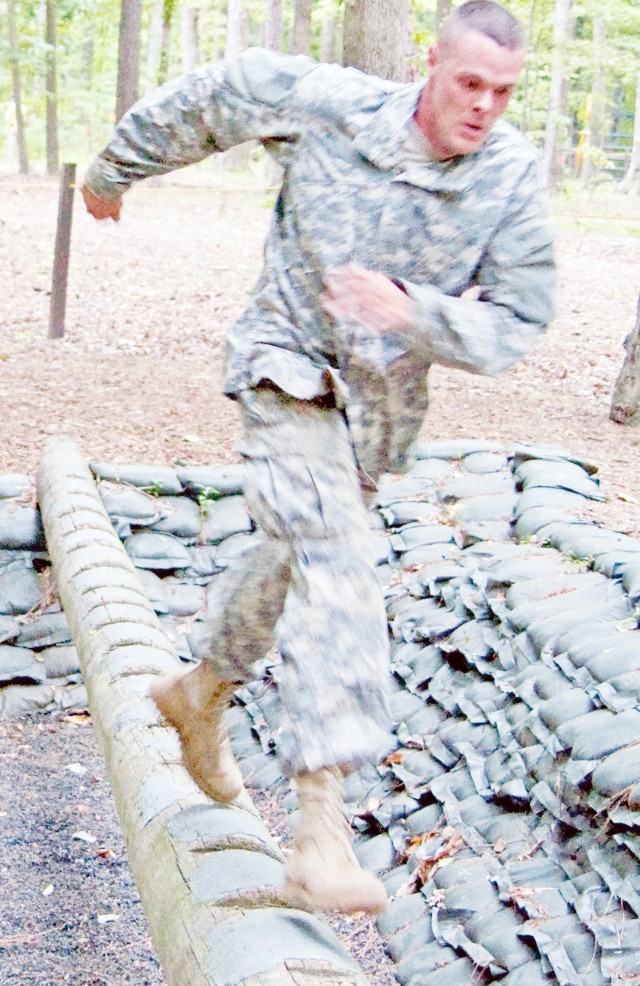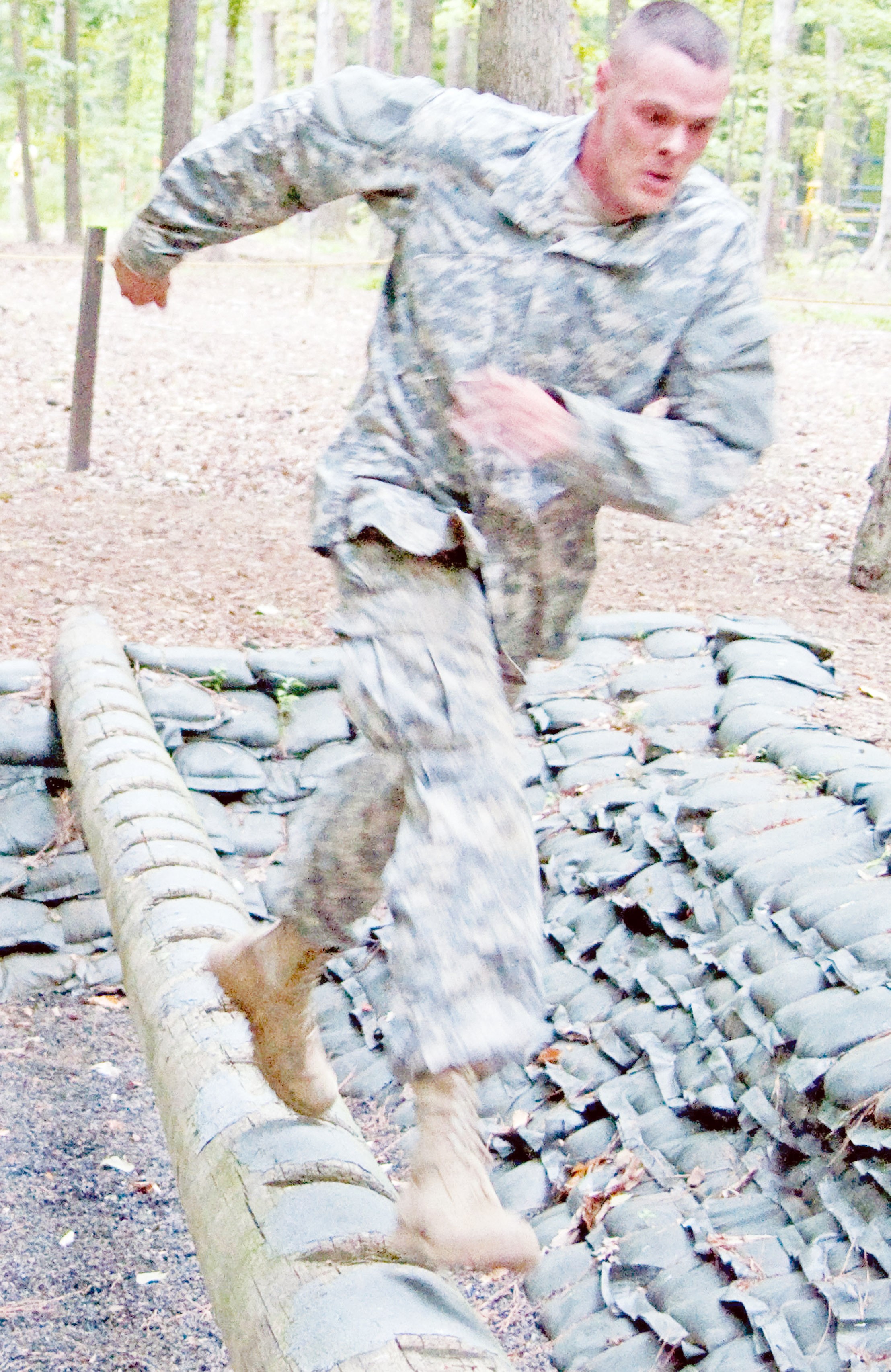
FORT RUCKER, Ala. -- Being a "well-rounded" Soldier is the only way to be successful at the U.S. Army Training and Doctrine Command Noncommissioned Officer and Soldier of the Year competition, according to the two delegates sent by Fort Rucker.
Sgt. 1st Class Nicholas Beauchamp, NCO Academy instructor, and Spc. Keely Misemer, C Company, 1st Battalion, 11th Aviation Regiment, traveled to Fort Monroe, Va., to compete against six other active-duty Soldiers in events meant to test them mentally and physically.
TRADOC tested Soldiers from its four major commands - the Combined Arms Center, U.S. Army Accessions Command, the Combined Arms Support Command and Initial Military Training. Each candidate competed and won at lower level competitions conducted within their represented organizations.
Neither Beauchamp nor Misemer took top honors, but both felt the competition was worth the training and effort.
"It was really challenging, but I learned a lot about myself," Beauchamp said. "The whole competition was really well-done."
Beauchamp said preparing for the three-day event was a long process. In order to compete at this level, participants had to "have the whole Soldier concept."
"You really have to be good at everything," he said. "If someone wants to try this, they have to start with the basics and train every day."
Beauchamp said he doesn't plan to participate at another competition of that type for a while, but he does plan to pass along what he learned to his fellow Soldiers.
Misemer said the competition results were tight. Many of the Soldiers finished within just a few points of each other. She added the hardest part of the event was going through the media training portion.
"It was a bit nerve-racking for me to have a camera right in my face," she said. "I learned a lot from that and from all the other competitors."
She said the event was something she would like to do again, but she wants to train someone else to do it first.
"If someone is willing to put their time and effort into it, I'd love to train them to compete," she said. "The training is a big commitment. You have to go through a lot to prepare for it."
The obstacle course was her best event, she said. She didn't finish with the fastest time, but felt good about her performance.
"You can always do better in these events," she said. "I never thought I'd be going to a TRADOC competition. I think it's important that I made it to that level."

Social Sharing